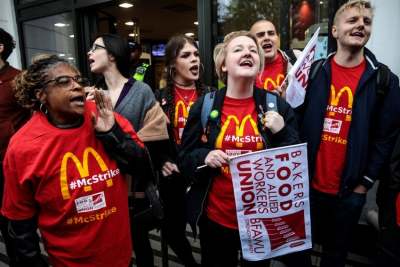(You'll notice that the score table in this guide is no longer displaying. This is because the guide is over 5 years old and the scores were out of date. We have a programme of reviewing guides to schedule updates and this one is under consideration.)
Fast food chains: I’m not lovin’ it!
The fast food industry has never been exactly synonymous with ethics or sustainability, but recently some of the fast food old timers have been attempting to shake off their poor image, and some newer chains have come onto market selling themselves as a more sustainable fast food option.
We here aim to sort the claims from the reality.
Many of the issues we discussed in our guide to chain restaurants are also pertinent to fast food, such as workers pay and transparency on sourcing.





